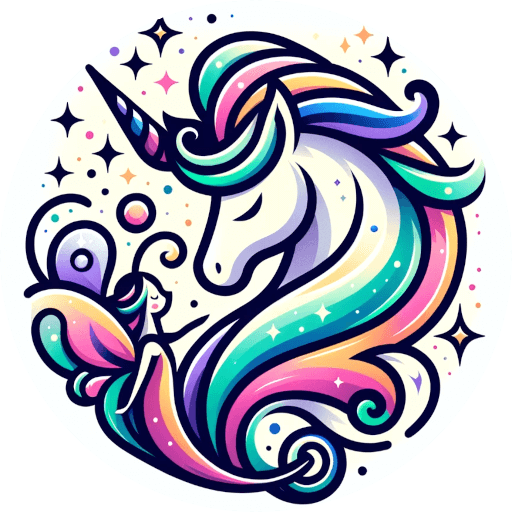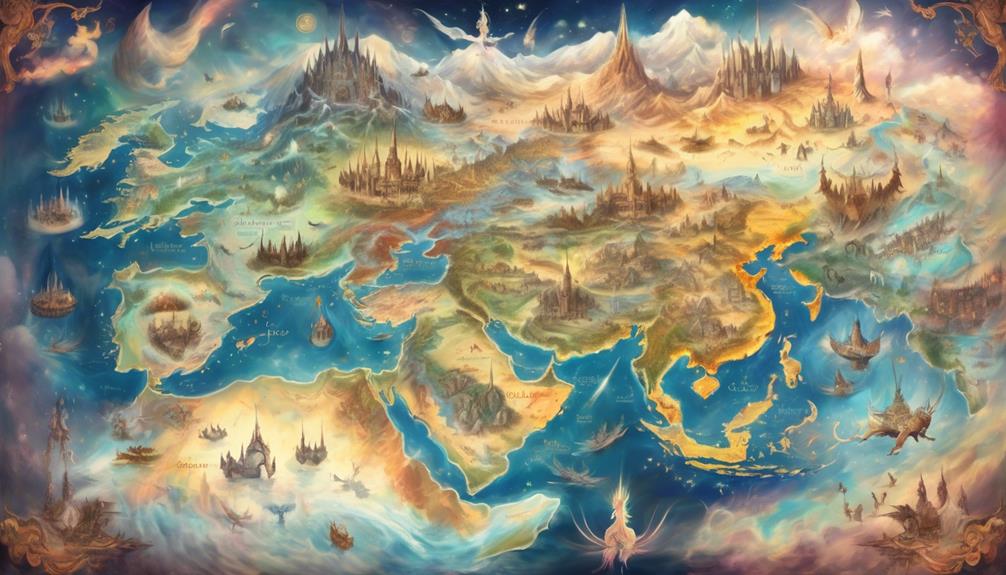Unicorns, like elusive constellations in a vast celestial sky, have garnered a global following that spans continents and cultures. Their enigmatic presence is not only reflected in folklore and art but also in the diverse array of names they are given across the world.
As the article unfolds, the intricate web of linguistic and cultural interpretations of unicorn names will be unveiled, offering a glimpse into the rich tapestry of beliefs and traditions that have shaped the global perception of these mythical creatures.
This exploration promises to unravel the intricate connections between language, culture, and the enduring allure of unicorns, shedding light on the fascinating ways different societies have articulated the magic and wonder associated with these extraordinary beings.
Key Takeaways
- Unicorn names vary across different languages, reflecting the cultural significance and symbolism associated with these mythical creatures.
- In Chinese (Mandarin), the unicorn is known as 麒麟 (Qílín), representing good fortune and prosperity.
- The unicornio in Spanish symbolizes purity and grace, while the English term unicorn represents elegance, enchantment, and magic.
- The unicorn is referred to as حصان وحيد القرن (Hissan wahid al-qarn) in Arabic, meaning a single-horned horse.
Unicorn Names in Major World Languages
Unicorn names in major world languages showcase the diverse cultural and linguistic representations of this mythical creature across different regions.
In ancient languages, unicorn names often carried deep cultural significance. For example, in Chinese (Mandarin), the name 麒麟 (Qílín) is associated with good fortune and prosperity, while in Hindi, एकश्रंग (Ekashringa) is known for its exceptional power. These names reflect the cultural significance of unicorns in their respective societies.
From Spanish to Russian, unicorn names symbolize purity, grace, and mysticism, highlighting the universal appeal of this mythical creature.
Understanding the unicorn names in major world languages provides insight into the global fascination with unicorns and their enduring significance in human imagination.
Unicorn Names in Lesser-Known Languages
The cultural and linguistic representations of unicorn names in major world languages illustrate the deep significance of this mythical creature, paving the way for an exploration of its portrayal in lesser-known languages.
The cultural significance of unicorn names in lesser-known languages is profound, reflecting the unique beliefs and mythologies of these cultures. The influence of mythology on unicorn names in different cultures is evident, with each language offering a distinct perspective on this legendary creature.
Names such as Gobor in Bengali, Yednorog in Russian, and Yunikon in Korean exemplify the diverse cultural interpretations of the unicorn. These names not only highlight the linguistic diversity but also shed light on the universal allure of the unicorn, emphasizing its enduring appeal across various lesser-known languages.
Unique Unicorn Names in Specific Cultures
In various cultures around the world, the unicorn is known by unique names that reflect the specific beliefs, mythology, and cultural significance of each society.
The variations in unicorn names across different cultures highlight the deep-rooted cultural significance of these mythical creatures.
For instance, in Chinese (Mandarin), the unicorn is known as 麒麟 (Qílín), symbolizing good fortune and prosperity.
In Spanish, it's referred to as unicornio, representing purity and grace.
Each name carries a rich history and holds a special place in the folklore and traditions of its respective culture.
These diverse unicorn names not only showcase linguistic differences but also shed light on the diverse ways in which various societies perceive and honor these enchanting beings.
Unicorn Names in Additional Global Languages
Across diverse linguistic and cultural landscapes, the unicorn is known by a multitude of unique names, each reflecting the specific beliefs and mythologies of the societies that honor them.
The cultural significance of unicorn names in different languages is profound, with each name carrying centuries of folklore and tradition.
The evolution of unicorn names in various global cultures has shaped the perception of these mythical creatures, attributing qualities such as purity, grace, and mystique to their names.
In additional languages, the unicorn continues to captivate with names like ایک سینگ (Ek Sing) in Urdu, unicorno in Italian, and 單角獸 (Daan Gok Sau) in Yue Chinese (Cantonese), each adding a layer of cultural richness and diversity to the global tapestry of unicorn mythology.
The names of unicorns in various languages serve as a testament to the enduring enchantment and fascination that these creatures evoke worldwide.
Diverse Terminology for Unicorns Worldwide
As the names of unicorns in various languages have contributed to the enduring enchantment and fascination that these creatures evoke worldwide, exploring the diverse terminology for unicorns across different cultures becomes an intriguing endeavor.
Unicorn names in indigenous languages hold immense cultural significance in different regions. For instance, the Chinese qilin symbolizes good fortune, while the Hindi ekashringa represents exceptional power. In Bengali, the gobor is believed to possess mythical and magical qualities, and the Portuguese unicórnio is associated with purity and grace.
Each name reflects the unique cultural context and values of the respective language, adding depth and richness to the mythical creature's symbolism.
Understanding these diverse unicorn names in indigenous languages offers a fascinating insight into the varied cultural interpretations and significance of unicorns worldwide.
Frequently Asked Questions
What Is the Significance of Unicorns in Different Cultures and Mythologies?
Unicorns hold significant cultural interpretations in various mythologies. Their symbolism varies from good fortune and prosperity in Chinese culture to purity and grace in Spanish and Portuguese cultures. These interpretations reflect diverse beliefs and values worldwide.
Are There Any Specific Rituals or Traditions Associated With Unicorns in Certain Cultures?
Unicorn rituals and cultural traditions vary worldwide, with diverse meanings and symbolism interpretations. Specific rituals and traditions associated with unicorns in certain cultures reflect the significance of purity, grace, and mystique in their mythology and folklore.
How Do Different Cultures Interpret the Symbolism of Unicorns?
Different cultures interpret the symbolism of unicorns in various ways, reflecting cultural significance and unicorn mythology. The interpretation of purity, magic, grace, and mystical qualities varies across languages, adding depth to unicorn symbolism.
Are There Any Historical or Archaeological Findings Related to Unicorns in Different Parts of the World?
Historical findings and archaeological evidence suggest ancient depictions of unicorns in different cultures, highlighting their cultural significance. These depictions offer insight into how unicorns were perceived and valued across various civilizations throughout history.
What Are Some Popular Modern-Day Representations of Unicorns in Various Global Cultures?
Unicorns are popular in modern art, fashion trends, and themed festivals worldwide. They are represented in various global cultures through merchandise and mythical symbolism, showcasing their enduring appeal and magical allure to diverse audiences.

